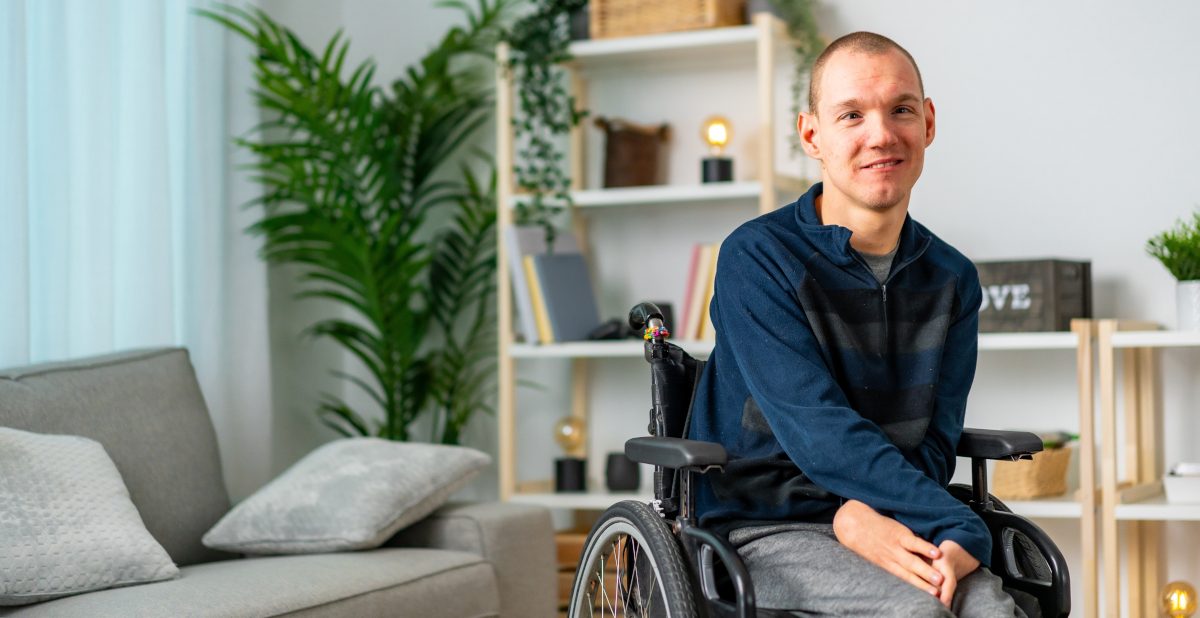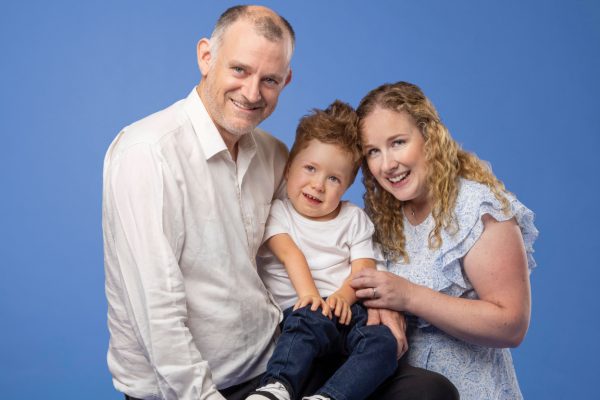
Your life, your home, your way: independent living options
If you’re confused by the range of home and living supports available through the National Disability Insurance Scheme (NDIS), our friends at My Plan Manager have got you covered.
Home and living supports can help you choose who you want to live with and where you want to live. Funding can also be provided for home modifications, assistive technology and formal supports.
Here’s a breakdown of each type of home and living support available in the NDIS, the criteria to apply, and how it might look in your plan – depending on whether or not it’s built in the National Disability Insurance Agency’s (NDIA’s) new computer system, PACE.
In every case, supports must meet the NDIA’s reasonable and necessary criteria and help you achieve your plan goals.
SHORT TERM ACCOMMODATION
Short Term Accommodation (STA) funding covers the cost of support and accommodation for a short time away from your usual home (up to 14 days at a time). It can include:
• short term support – alone or with a group of people who may have similar needs and interests – to build new skills, achieve plan goals or provide a break to you and carers.
• overnight or weekend support away from home in a hotel – for example, if you’re going to participate in a sporting event which is a plan goal, and you require accommodation and other supports while you’re there.
• short term support at a retreat to try new things, develop new skills or meet new friends.
The NDIS can fund up to 28 days of STA per calendar year, which can be used flexibly – but you can’t claim more than 14 days in a row. If you want to access more than that, you’ll need approval from the NDIA.
You may request STA to prepare to live independently or make new friends, or to access value for money supports within the scope of your Core Supports budget.
If STA isn’t stated in your NDIS plan but you have funding available in your Core Supports budget, you may be able to use it for STA.
HOW IT LOOKS IN YOUR PLAN
Regardless of whether your plan is on the NDIA’s ‘old’ system or its new PACE system, if you have STA funding it will be included in your Assistance with Daily Life budget (no description is typically included in plans that aren’t on PACE).
MEDIUM TERM ACCOMMODATION
Medium Term Accommodation (MTA) can help you find a place to live when you haven’t yet found your long term home. You might be funded for MTA if you’re moving out of a healthcare setting, like a hospital, or waiting to move into Specialist Disability Accommodation (SDA).
The NDIA typically funds MTA – which doesn’t cover the cost of food – for up to 90 days, and it must be included in your plan.
To be eligible for MTA, you need to have found, or be looking for, long term accommodation.
HOW IT LOOKS IN YOUR PLAN
If you don’t yet have a PACE plan, MTA will be described specifically, and funding will be included in your Assistance with Daily Life budget.
For those with a PACE plan, if you receive MTA funding it will be included in your Home and Living budget.
SPECIALIST DISABILITY ACCOMMODATION
If you have very high support needs, it could mean you need to live in a specially designed home that meets your access requirements. If you do, SDA will be a stated support listed in your plan. A stated support means funding has been allocated for a specific support or service, and you can’t use it for anything else.
To be eligible for SDA you must have an extreme functional impairment or very high support needs. SDA housing includes accessible features that help residents live more independently and allow other supports to be delivered better or more safely.
Funding for SDA is paid directly to your provider to cover building and maintenance costs, and you’ll need to pay a reasonable rent contribution and other day-to-day living costs, such as electricity bills.
HOW IT LOOKS IN YOUR PLAN
For participants with non-PACE plans, SDA will be specifically described in the plan and funding will be included in your Home Modifications and Specialist Disability Accommodation budget.
If you have a PACE plan, funding will be included in your Specialist Disability Accommodation budget.
SUPPORTED INDEPENDENT LIVING
Supported Independent Living (SIL) funding is designed to provide you with the support you need to assist you to complete daily tasks and build your skills.
It covers a range of supports in and out of home, like cleaning, cooking, personal care, or support to access the community – but not rent or other day-to-day expenses, like utility bills and groceries.
You may also be able to claim 10-15 days of ‘irregular SIL supports’ each year and funding for ’unplanned exits’ may also be provided if you need to immediately exit SIL accommodation due to a death or breakdown in your support relationship.
HOW IT LOOKS IN YOUR PLAN
SIL will be specifically described in your plan if you’re not yet on PACE and funding will be included in your Assistance with Daily Life budget.
For those with PACE-plans, funding will be included in your Home and Living budget.
INDIVIDUALISED LIVING OPTIONS
Individualised Living Options (ILO) funding gives you choice and control to live the way you want and in a living arrangement that suits your needs and preferences – but with tailored supports that help you achieve your goals.
You may decide to share your home with friends or housemates, live with a ‘host’ who’ll provide informal supports, or live on your own with the support you need. ILO supports work with other funded supports and services, as well as with informal supports.
Funding for ILO doesn’t cover the cost of accommodation. You’ll first need to work out where you want to live, who you want to live with, what support you’ll need, and who you want to provide that support. Then, you can work with your support coordinator or local area coordinator to put your supports into place.
HOW IT LOOKS IN YOUR PLAN
ILO will be specifically described in your plan if you’re not on PACE and funding will be included in your Assistance with Daily Life budget.
If you have a PACE plan, funding will be included in your Home and Living budget.
Assistance with Daily Life
Assistance with Daily Life is a support category in your Core Supports budget. It’s for assistance or supervision of personal tasks carried out during day-to-day life to help you to live as independently as possible. Examples might include assistance with household cleaning or yard maintenance, or support to attend medical and other appointments.
These supports are provided individually to participants and can be delivered in a range of environments, including your own home.
Applications for Assistance with Daily Life funding are assessed on a case-by-case basis.
HOME MODIFICATIONS
Home modifications are changes that are made to the structure, layout or fittings of your home, so you can safely access it and move around comfortably. The NDIS can fund home modifications to make a home accessible.
You may need home modifications if you:
- have safety concerns or difficulty moving around your home.
- have trouble with personal care, like using your shower.
- can’t use the rooms you need to use in your home.
- have difficulty achieving your goals in your home because of your disability.
- need changes to your home so your carers can support you safely.
HOW IT LOOKS IN YOUR PLAN
If your plan isn’t a PACE plan and you’re funded for home modifications, the funding will be specifically described in your plan and included in your Home Modifications and Specialist Disability Accommodation budget. Participants with PACE plans will see their home modifications funding (if they have it) included in their Home Modifications budget.
Assistive technology
Assistive technology is equipment you may need to help you with everyday tasks. Perhaps you want to buy an iPad to help you to communicate better, or modified cutlery for a child who’s learning to cut up their own food? Maybe you need a new wheelchair, a handrail or a washing line to assist you to live more independently?
Low-cost assistive technology priced under $1500 can come out of your Core Supports budget, while assistive technologies priced at more than $1500 need to be written into a plan.
Be sure to talk to your NDIA Partner about exploring your home and living options and ask their advice about what to do next.
Want to learn more about NDIS plan management? Check out My Plan Manager – Australia’s first, largest and leading plan management provider – at myplanmanager.com.au or give them a call on 1800 861 272.






